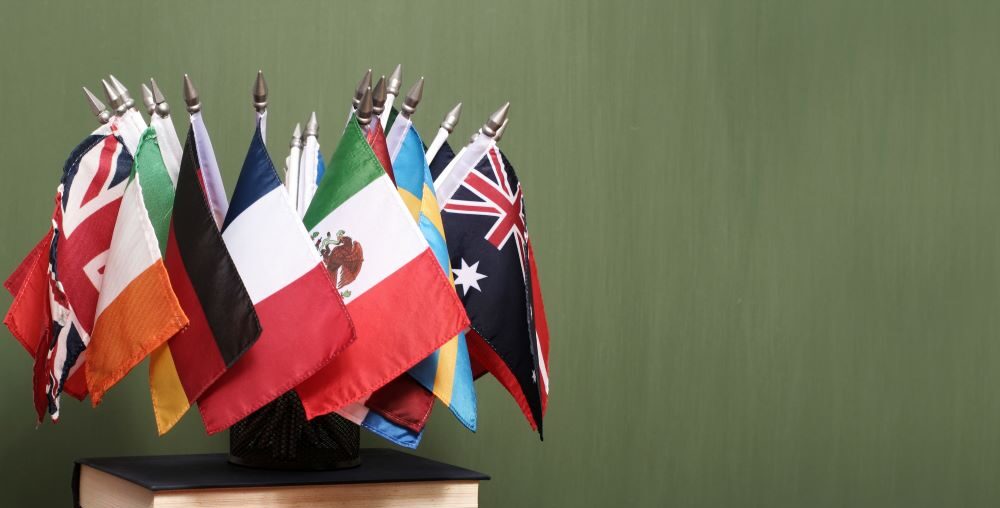An increasing number of international university students in the U.S. are being blindsided by sudden visa revocations, leaving many facing detention or potential deportation. According to Secretary of State Marco Rubio, the State Department has revoked more than 300 student visas nationwide since the beginning of President Donald Trump’s second term.
Institutions such as Harvard, Stanford, Michigan, UCLA, and Ohio State University have reported numerous cases. The reasons for the visa revocations vary, with some tied to political activism, others to minor offenses, and some with no clear explanation provided by government officials.
Related Article: 3 Immigrant College Students Detained by ICE Sent to Remote Louisiana Facilities
One of the high-profile cases involves Mahmoud Khalil, a green card holder and student leader involved in pro-Palestinian protests at Columbia University. Khalil was detained after his visa was revoked, raising concerns about whether First Amendment activities may be putting international students at risk. However, other cases involve students with no protest connections, with reasons ranging from minor infractions, such as traffic violations, to situations in which no formal justification has been disclosed.
For many students and university administrators, the discovery of a revoked visa comes as a surprise. Often, changes in a student’s immigration status are only noticed when schools check federal databases that track visa compliance.
International students in the U.S. on F-1 visas must meet stringent requirements, including demonstrating financial means, maintaining academic performance, and adhering to immigration rules. Their legal status is overseen by the Student and Exchange Visitor Program (SEVP), which operates under the Department of Homeland Security (DHS). However, the recent uptick in unexpected revocations has led to significant concern about what new criteria may be at play.
University officials fear that uncertainty surrounding visa revocations could significantly damage America’s appeal as a destination for international students. Many academic institutions rely on international students to diversify their student bodies and contribute billions to the U.S. economy annually.
The new policies could also result in a “brain drain” from the U.S. According to a new survey conducted by Nature, 75% of U.S. scientists are considering looking for jobs in Canada and Europe.
Several colleges and universities are taking steps to protect their international students, including advising them to carry their passports and immigration documents at all times. Additionally, they are demanding transparency and clearer communication from the federal government.
Which Universities Have Been Impacted by Student Visa Revocations?
Below are some of the institutions of higher education that have been impacted by the Trump administrations new policy on visa revocations, as well as the number of students who have had their visas revoked, according to ABC News.
- Arizona State: 8
- Central Michigan: 4
- Colorado State: 6
- Harvard: 5
- Kent State: 3
- Minnesota State: 5
- North Carolina State: 2
- Ohio State: 5
- Stanford: 6
- University of Cincinnati: Unknown
- University of Colorado: 2
- University of Kentucky: Unknown
- University of Massachusetts Amherst: 5
- University of Michigan:: 4
- UNLV: 4
- University of Oregon: 1
Additionally, about a dozen Johns Hopkins University international students have had their student visas revoked, reports the Baltimore Banner. Three Duke University students have also had their visas revoked.
Related Article: Trump Executive Order Urges Universities to ‘Monitor,’ ‘Report’ Protesters on Student Visas
In California alone, at least 83 foreign student visas within the University of California (UC) and California State University (CSU) systems and at Stanford have been revoked, reports the Los Angeles Times. The UC campuses that have been impacted include UCLA (12 students, staff and faculty), Santa Cruz (three students), Berkeley, Davis, San Diego and Riverside. CSU officials said at least 32 students systemwide have had their visas revoked.
In Texas, several international students at the UT Austin and Texas A&M had their visas revoked without notice, reports Chron.com. In Gainesville, Fla., one University of Florida student from Colombia was arrested and sent to an ICE facility over an expired vehicle registration, reports the Orlando Weekly. He had previously been ticketed for driving without a license. In Illinois, multiple University of Illinois Urbana-Champaign students have also lost their visas, as well as an international student from Southern Illinois University, reports IPM News.
The growing number of visa revocations has placed mounting pressure on federal immigration agencies to provide clarity on the matter. Colleges are urging the government to address these concerns and ensure fair treatment for international students. Until then, students, faculty, and administrators remain in limbo, awaiting answers.

